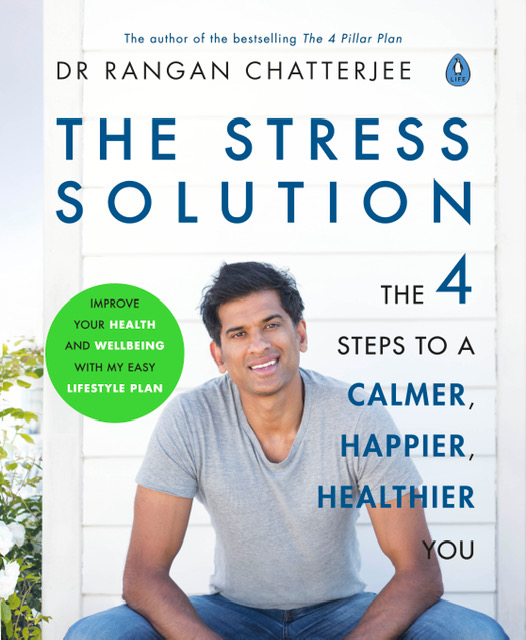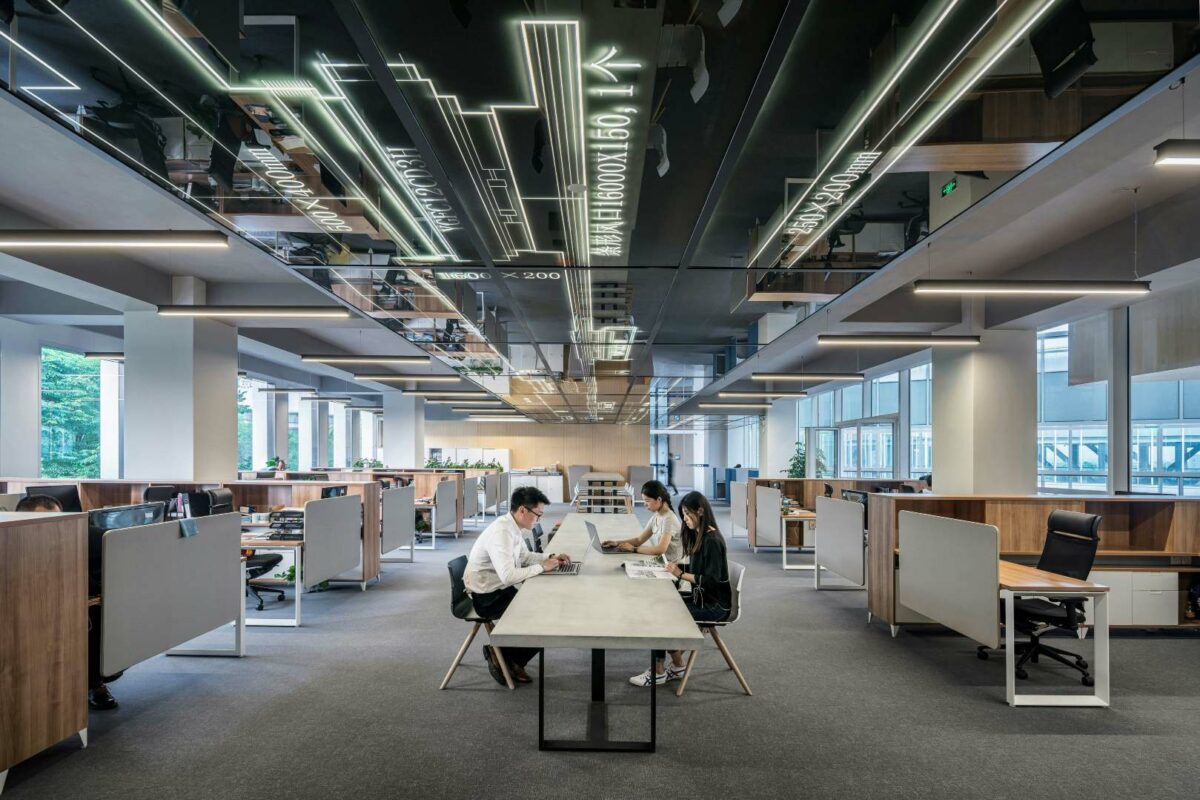To mark Mental Health Awareness Week, the bestselling author and star of Doctor in the House talks us through simple measures we can take to lower our stress levels
Stress has been dubbed the health epidemic of the 21st Century, and Dr Rangan Chatterjee would wholeheartedly agree. The bestselling author and star of BBC’s Doctor the House tells Work in Mind that he’s seen a notable increase in work-related stress over the last five years.
“We’re more stressed than ever before, there’s no question about it,” he says, in our exclusive interview. “I’ve been seeing patients for nearly 20 years, and I’m seeing more stress related problems today than I was five years ago. Work is a huge source of this.
“The current stats tell us that 70-90% of what a GP sees is in some way linked to stress. Whether its teachers, nurses or HR managers, there’s a huge amount of people asking to be signed off work, because they need time off to get their heads back together.”
So, what’s behind this stress epidemic? Dr Chatterjee, who is author of The Stress Solution, believes technology is largely responsible.
“Ten years ago, there was a clear line between work and personal life,” he says. “Now that line is blurred and, in many cases, obliterated. These magical things called smartphones mean we can see our work emails on weekends and evenings, and while that’s caused a lot of benefit, it also comes at a huge cost.”
Dr Chatterjee believes another root cause is the way our society is becoming increasingly urbanised and divorced from the natural world.
“The World Health Organisation have published a lot of research that says the more urbanised our society gets, the worse our health gets,” he says. “There are many reasons for that, but the further away we get from nature’s natural rhythms and cycles – like going outside in the daytime – the worse our health gets.”
Here, he cites the healing power of fractals, which are the random patterns that emerge in nature, such as clouds, snowflakes and water. Most of us have at some point found it soothing to watch the rolling ocean waves or gaze at flickering flames, and this is because we’re programmed to respond positively to these patterns.
“The need to be around nature is hard-wired into us,” says Dr Chatterjee. “When you look at a fractal, your cortisol level drops. In fact, you just have to look at a picture of nature and your stress levels go down.”
Thankfully, while stress may have reached epidemic proportions, Dr Chatterjee believes many businesses are now recognising the severity of the issue. And not a minute too soon – according to the Health and Safety Executive, 15.4million working days were lost in 2017/18 as a result of work-related stress, anxiety or depression.

“Employers are taking it seriously, because they have to,” he says. “If the wellbeing narrative isn’t enough, the economic case is becoming stronger and stronger. Employers want staff to be more focused and productive – they don’t want them taking a lot of paid leave.”
So, what changes can we all – staff and employers alike – make to our daily routines, to reduce our stress levels?
Prioritise regular breaks
“Working through lunch breaks is counterproductive,” says Dr Chatterjee. “This idea that we need to pile on through in order to be more productive is totally false. I tell all companies not to put pressure on their staff. If you encourage people to put their laptops down and go out, you’ll get more productivity.
“Everyone would benefit from a tech-free lunch break, even if it’s just 15 minutes. When you spend those 15 minutes not looking at your screen, you start to recharge your brain. And when you switch off, the problem-solving, creative part of your brain actually kicks in. In effect, you’re working when you’re not working.”
In case anyone remains sceptical, he cites the outcome of a recent TV show, which involved measuring participants’ stress levels throughout the day. One was a manger, who took his job very seriously, working through lunch and always leaving late.
“We could see that throughout the day, his stress levels were rising,” says Dr Chatterjee. “So, I asked him to leave his phone by his desk and go for a walk by a nearby river for 15 minutes every day. Within three weeks his stress levels had gone down, he said he was more productive and he was leaving work earlier.”
Set boundaries
Smartphones and innovative software might have given us 24/7 connectivity, but Dr Chatterjee says it’s vital to ringfence down time. Here he points to forward-thinking employers, who maintain clear boundaries between work and personal life.
“As a society we’re conditioned to think it’s lazy, but we need time off, when we’re not focused on work,” he says. “There’s a German car manufacturer that doesn’t allow staff to check emails on holiday – you can’t physically log on. They are doing this because there’s a strong financial case. They know that if they give their employees time off to relax, they’ll be more motivated and focused when they come back.
“It’s hugely important to have barriers around personal time. If you like to email staff late in the evening, make sure they don’t feel obliged to respond until the next day. It’s about using the freedom technology gives us, without putting pressure on the people around us.”
Embrace the natural world
We’re increasingly recognising the economic and wellbeing merits of biophilic design, and Dr Chatterjee believes including nature in the workplace is a no-brainer.
“Nobody feels worse around nature, whether that means having more natural light, plants or even photos of natural scenes,” he says.
“Cigarette breaks used to be accepted, so why not encourage staff to have “green breaks”? A lot of hospitals have taken the importance of nature on board, and are including green spaces within their design. We know that patients will feel better, and it will help their recovery.”
Encourage sleep
In his brilliant book, Why We Sleep, Professor Matthew Walker goes so far as to suggest companies should financially incentivise staff to get enough shut-eye. And Dr Chatterjee wholeheartedly agrees that sleep is one of the most undervalued pillars of health.
“Many of us simply don’t prioritise sleep, because there are so many brilliant distractions around,” he says. “But if you get 30 minutes more sleep every night for the next seven days, you will feel less stressed. Your emotional brain is much less reactive the day after you’ve slept well – if you haven’t slept well a simple comment or email from a colleague can be taken the wrong way.”
He adds, “Matthew [Walker] thinks sleep is more important than food and I’m inclined to agree, because when you sleep well, it’s much easier to make good health decisions. I’m pretty militant about switching off – after half eight I’ll shut my laptop, then I wind down by reading, listening to music or watching TV. I don’t think about work, and it’s completely changed the way that I feel.”
To find more content on being stressed at work, click here.
Dr. Rangan Chatterjee GP is author of The Stress Solution and host of the ‘Feel Better, Live More’ podcast. The Stress Solution is published by Penguin.
Sophie Barton
Sophie Barton is our Features Editor. She a journalist and editor with 20 years’ experience in the national media, specialising in wellbeing and lifestyle.




